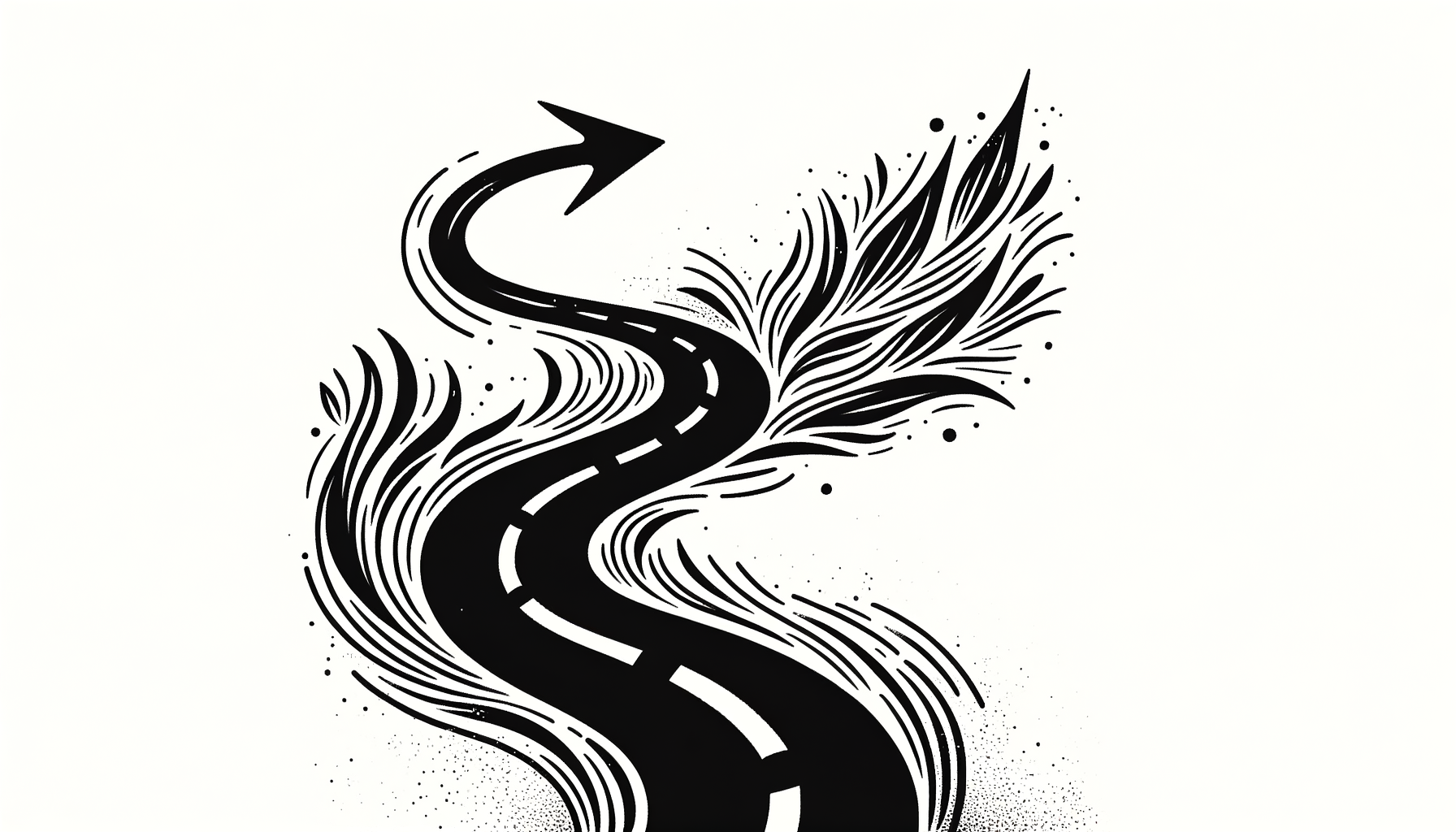It happened in a stuffy meeting room during an awkward lunch break at my first real job. I was 24, freshly graduated with a degree in Environmental Policy and no clear roadmap for what to do with it. My role at the conservation nonprofit was a patchwork of tasks—running spreadsheets, stuffing envelopes, proofreading grants—but none of it felt like me. I was a spokes-on-the-wheel kind of guy, silently slogging through, wondering if I’d taken the wrong exit off Life Highway.
Then came Susan. She’d moved to Boulder from D.C., a firecracker of a woman who could jump from discussing watershed management to spearheading an impromptu potluck in the office kitchen. Susan had an uncanny ability to see through people’s carefully constructed façades, mine included. One day, while I was fiddling with my Tupperware and attempting to fade into the corner, she sat across from me, locked eyes, and said, "You write, don’t you?"
When the World (and You) Don’t Know Who You Are
I stammered something noncommittal, like, “Oh, I guess? Sometimes,” because, let’s face it, owning your talents at 24 feels like bragging. Sure, I'd been journaling since high school and had even cobbled together some amateurish essays about Colorado’s sprawling landscapes, but those pages were for me, not something I waved around for public applause.
But Susan wasn’t buying my modesty act. “No,” she said, leaning forward in a way that made me sit up straighter, “you write. I can tell. The way you talk about things, how you’re always observing. You’re supposed to be writing.”
Cue the internal cringe. I knew she meant well, but when someone challenges you to acknowledge that thing about yourself you’ve been brushing under the rug, it feels both flattering and exposing. Like when your friends make you sing at karaoke, and you’re caught between terror and thinking, “Okay... maybe I could nail this Beyoncé song?”
Looking back, I realize Susan saw something I didn’t: a road not yet taken. It’s a rare gift to meet someone who not only recognizes your potential but also throws you an exit ramp off the daily grind and points you in the direction of your true self. But let's be honest—at the time, I felt like Frodo being handed the One Ring. Sure, destiny might call, but could I even survive the journey?
The Nudge That Changes Everything
Susan didn’t just stop at making me uncomfortable during lunch. She followed up with persistence. When our organization was preparing a public event about the state of the Rockies, she suggested I write a blog post for our website. “You know the trails, the trees—just capture what it means to lose these places,” she said. That single pitch became a spark. I stayed up until 2 a.m. one night agonizing over every sentence, trying to balance my love of metaphors with a need to sound official and, well, grown-up.
The post was published later that week. It wasn’t perfect—it had the slightly overwrought vibe of a guy who’s just discovered Mary Oliver—but people liked it. Not just liked it but connected with it. Suddenly the office buzz wasn’t about Susan’s famed brownies or the next staff hike; it was about my words. It felt like someone gave me permission to take a deep breath for the first time in years. I wasn’t just Miles the Spreadsheet Guy anymore—I was Miles, the guy who writes.
Who’s “The Person Who Sees You” in Your Life?
If you’re lucky, you’ve had a Susan moment in your life. Maybe it was a friend who told you to ditch your toxic ex because they saw how dim your light had gotten. Maybe it was a college professor who hounded you into applying for that scholarship you didn’t think you deserved. Or maybe it was a stranger who gave you perspective on your own reflection when you couldn’t see it clearly.
Here’s the tricky part: most of us spend so much energy covering our insecurities with self-deprecating humor or overloading our schedules with "busy stuff" that we miss our own gifts. It takes an outsider to shine a flashlight into that blind spot and make you believe in something dormant. The catch? You have to trust their instincts at least a little, even when it feels like they’re seeing someone completely different from the self-image you’ve spent years curating. That might sound terrifying, but it’s also liberating. It pulls you off autopilot.
Here’s How to Spot (or Be) a Susan
Want to find—or maybe be—that person? Here’s what to keep in mind:
-
Look for the unspoken clues. Had someone complimented your playlist lately and said, “You’d make a killer DJ”? Or has a coworker offhandedly called you “the organized one” while they scrambled for Post-It notes? These are tiny breadcrumbs aimed at your big gifts.
-
Be curious, not pushy. If you see potential in someone, try what Susan did: call it out boldly but without pressure. There’s a fine line between being a cheerleader and signing someone up for a marathon they didn’t train for.
-
Follow up with specific opportunities. Seeing potential is one thing, but offering someone an actual chance to test it is the real magic. Susan didn’t just say, “You seem like a writer.” She said, “Write this for that.”
-
Surround yourself with diversity. Sometimes the “Susan” in your life is someone you wouldn’t expect—a barista who comments on your sketchbook or a kid who notices how well you explain stuff at the science museum. You can’t always predict who’s going to shake your world.
Finding (and Owning) Your Trajectory
That one lunch break turned out to be pivotal. Over time, I leaned into my writing, pitched op-eds, and eventually quit my nonprofit gig to follow my pen down some twisting trails that led to where I am now. But if Susan hadn’t stopped me with her psychic-level observation that sunny afternoon, I might still be filling spreadsheets with useful data but an empty heart.
Here’s the big takeaway: The people who see us, who honestly see us, are often rare and fleeting. But they leave enough breadcrumbs for us to follow when the road ahead feels blurry. So be open to the mentor who says, “You’ve got the voice to be a leader,” or the friend who jokes, “You should be in comedy.” Lean into the pedestrian comments that hold extraordinary truths.
Whatever path you take, trust this: what others see in you isn’t about their projection. It’s about you finally finding the courage to meet that version of yourself and say, “Hey, I’ve been waiting for me.”




















